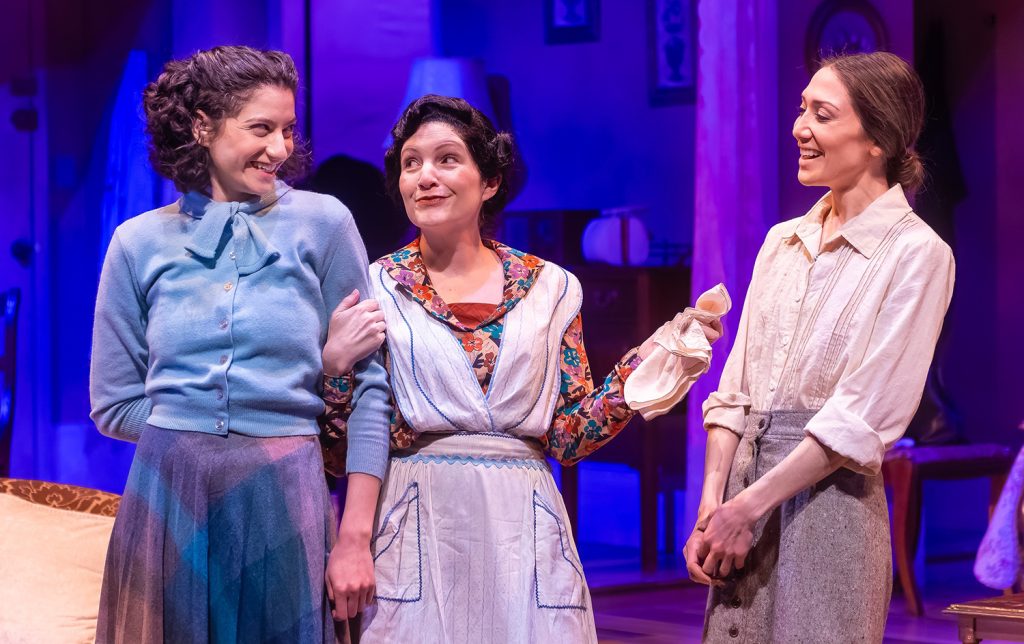
By Eric Marchese | Special to the NB Indy
It might be difficult to envision a play that’s grim yet also life-affirming, but “A Shayna Maidel” can honestly said to be both.
A somber tone is no surprise, as the 1987 play deals with the aftermath of one of the darkest chapters in human history, the Holocaust. Yet playwright Barbara Lebow also generates more than enough elements that are life affirming.
The strengths of her script and its characters and themes are on full display in a compelling Laguna Playhouse production beautifully directed and staged by David Ellenstein and expressively acted by his sterling cast.
We’re in New York City circa 1946. Mordechai Weiss (Joel Swetow) treks from his home in Brooklyn with news for daughter Rose (Eden Malyn): Her older sister Lusia (Zarah Miller) has been located by the International Red Cross and is being brought to New York.
And so, it would seem, a family reunion is in the making—but not so fast. Raised in the U.S., Rose is a product of American culture and a New Yorker through and through. Lusia has just a basic grasp of English and has only known life in Europe.
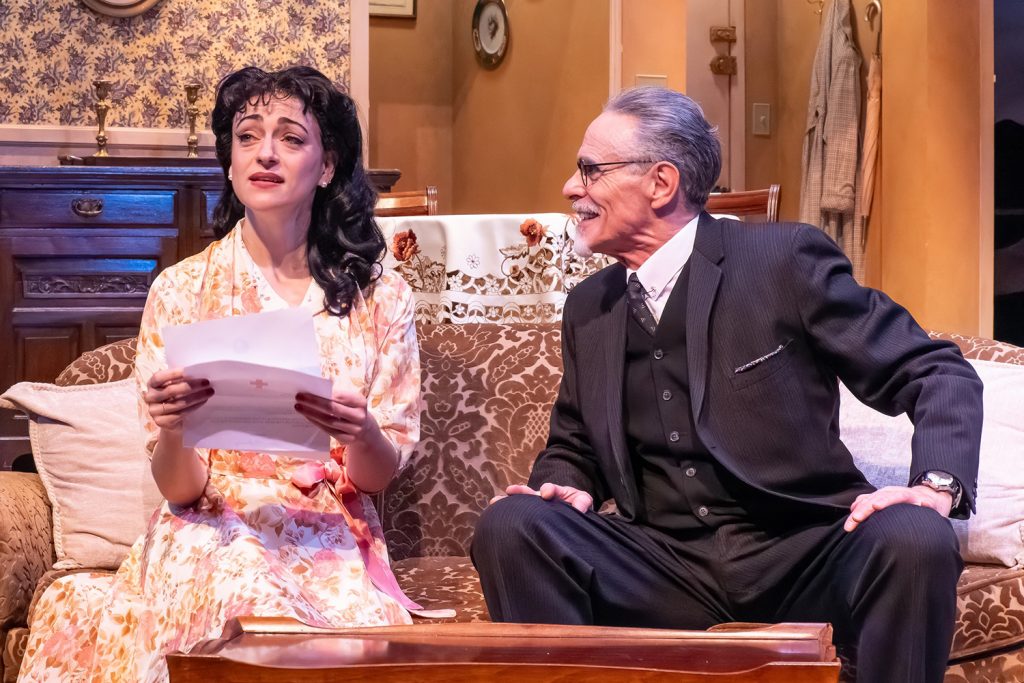
Not only are the sisters virtual strangers; Lusia’s memories of Mordechai as a stern, emotionally unyielding parent promise only to complicate the prospects of the Weisses coming together as a family.
Lebow uses three additional characters to add layers to the already fraught portrait of this fractured family: the girls’ mother (Samantha Klein), who remained in Poland with Lusia while husband Mordechai and young daughter Rose emigrated to the U.S.; Lusia’s husband Duvid (Josh Odsess-Rubin), separated from her in the chaos of the war; and cherished friend Hanna (Marnina Schon), who is far more like a close sister to Lusia than actual sibling Rose.
Lusia and Mordechai have each begun to keep, and culled, lists of family members and friends they continually update – those who have perished, those who might have survived, and of any survivors, those who might have made it to safe haven in the U.S.
At the top of Lusia’s list is husband Duvid, whom Lusia is convinced has survived and will soon be with her. Lusia and Mordechai, though, are equally stubborn, which shapes “Shayna” up for multiple clashes of will.
The script uses flashbacks to move back and forth in time, which allows us to see differing versions of Lusia – and in doing so, we hear Yiddish, Polish and vernacular American English.
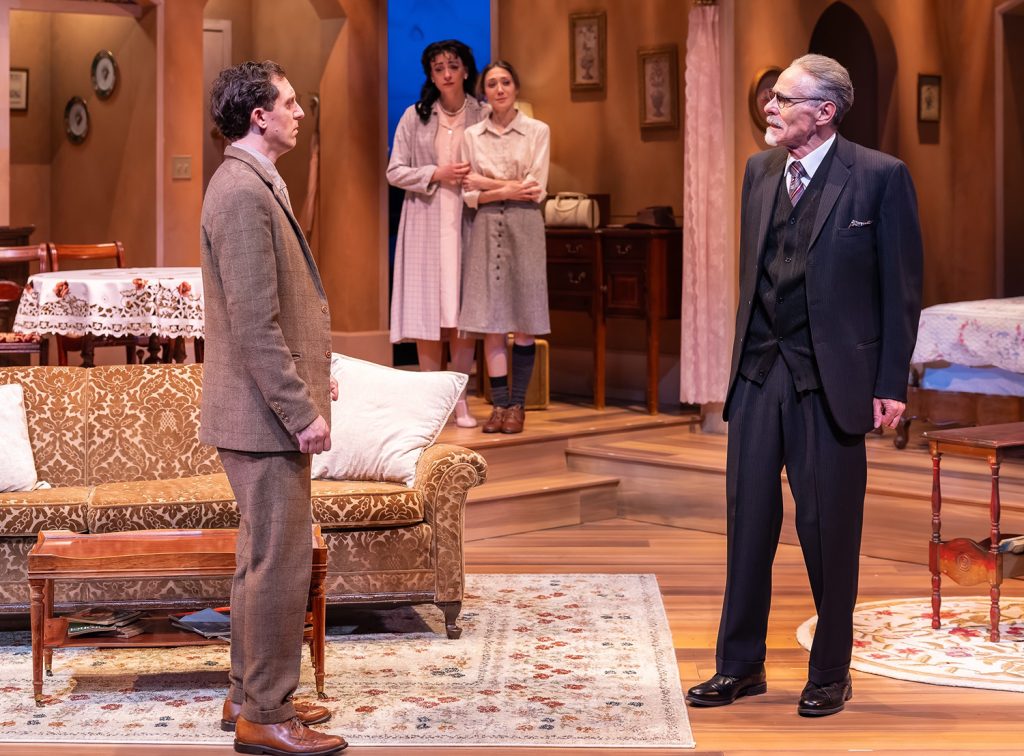
Playwright Lebow refuses to oversimplify her tale, and in offering it in this fashion, she allows us to assemble the play’s pieces for ourselves. That seemingly fragmented technique is far more emotionally potent than a less imaginative, more by-the-numbers approach would yield.
And so “A Shayna Maidel” is a muted drama about emotional pain and the attempts of damaged individuals to connect despite it. Late in the evening two characters are reunited in a key scene that’s anything but the joyous moment for which we’re hoping against hope.
At center stage at the Playhouse is Mahler’s remarkable, utterly compelling portrayal of Lusia, the actor’s personality and demeanor shifting from one moment to the next depending on when (and where) we’re seeing her.
Malyn ably captures the flashes of naiveté that inform Rose’s personality – just what we’d expect of someone so shielded from the hardships of the family’s Europeans.
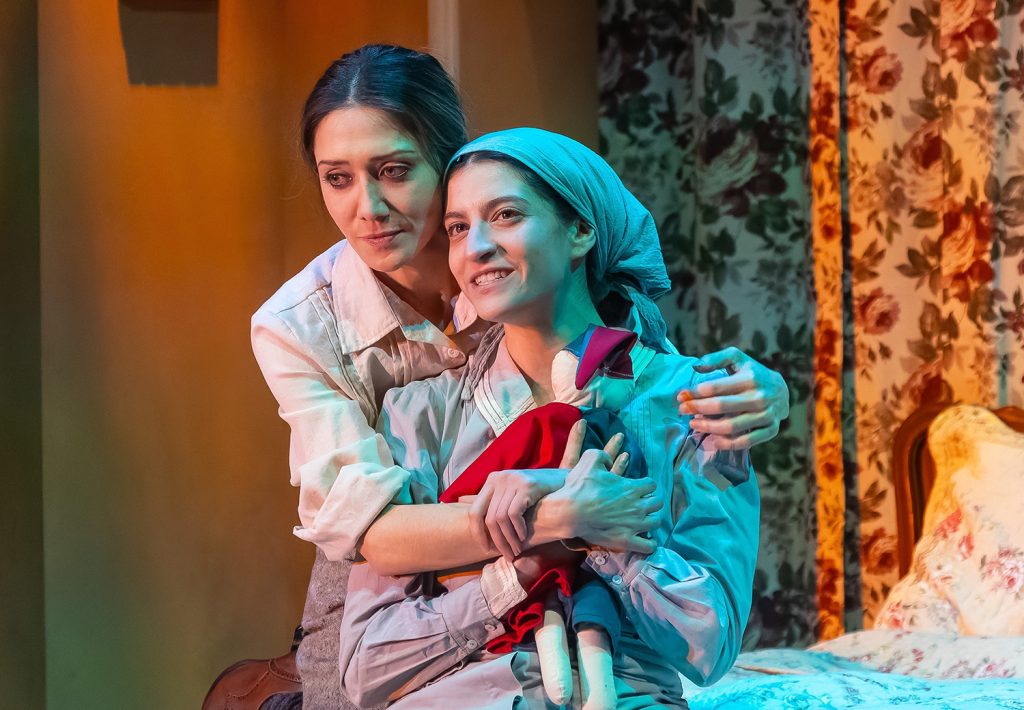
In looks, attire and conduct, Mordechai is ever the dandified gent – yet he’s a forceful martinet used to unquestioning obedience from his daughters. Swetow delivers a memorable portrayal, marked by brittle anger, of a crabby, thin-skinned, old-school papa.
Klein avoids stereotype yet delivers a Mama Weiss who’s wise, warmly loving and nurturing and whose words bolster her fierce belief and faith in God’s eternal wisdom.
In her unfettered affection for Lusia, Schon’s Hanna evinces a close bond like no other in the story. We also see credibly intimate warmth between Lusia and Duvid, fanned by Mahler’s trembling devotion to her husband and the ardent passion of Odsess-Rubin’s Duvid for Lusia.
You’d be incorrect in thinking “A Shayna Maidel” wallows in bathos. Lighter moments in the script generate laughs that leaven the evening. As for the overall tone, Ellenstein and company keep things restrained – and the play is all the more affecting, and effective for this.
As Lebow shows, no one in the Weiss family has had much control over their eventual fates. They’re swept along by fate, then forced to contend with what life has dealt them. Laguna’s emotionally muted yet expressive staging realizes Lebow’s vision in a production that’s heartfelt yet unsentimental.
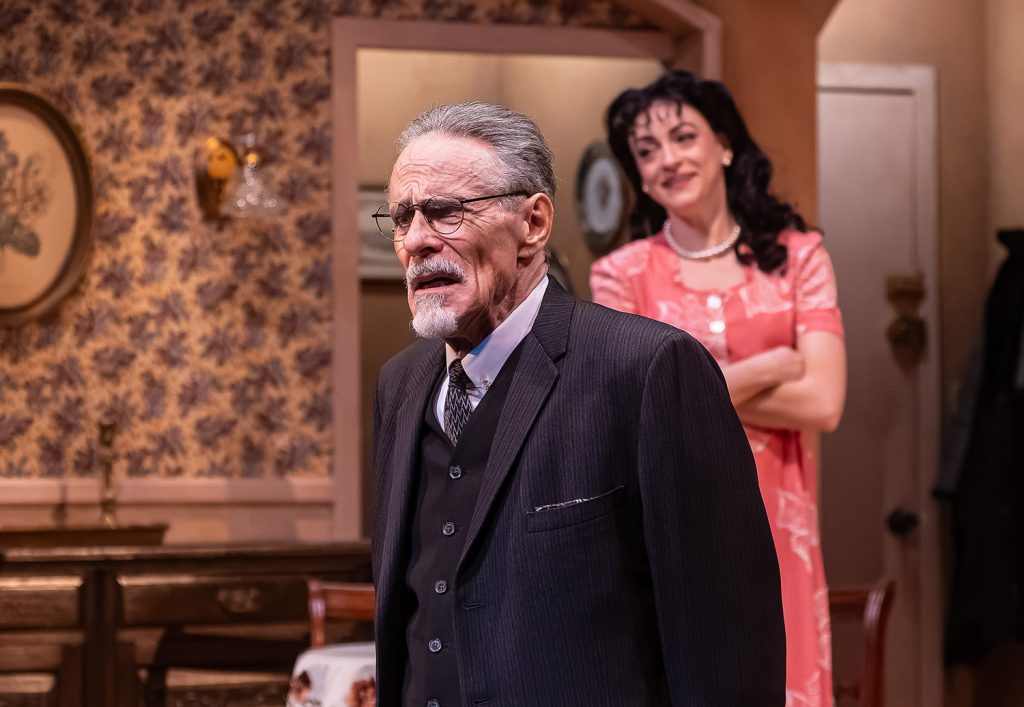
In eschewing bright colors in favor of shades of brown, white and pink in his set design, Stephen Gifford cannily represents the vitality that has been drained from this family. That neutral palette is mirrored by Elisa Benzoni’s costumes in which Rose’s colorful attire reflects an outlook untainted by despair versus the more somber grays and browns of the characters around her.
Ian Scott and director Ellenstein’s use of period music weaves a delicate sound scheme that evokes the idea of something fragile being pieced together and hopefully restored, while dialect coach Jana Mazurkiewicz ensures authenticity in the cast’s delivery of the wide-ranging languages depicted.
The show’s lighting (by Jared A. Sayeg) and hair and wig designs (by Peter Herman) complete the visual power of Laguna’s production.
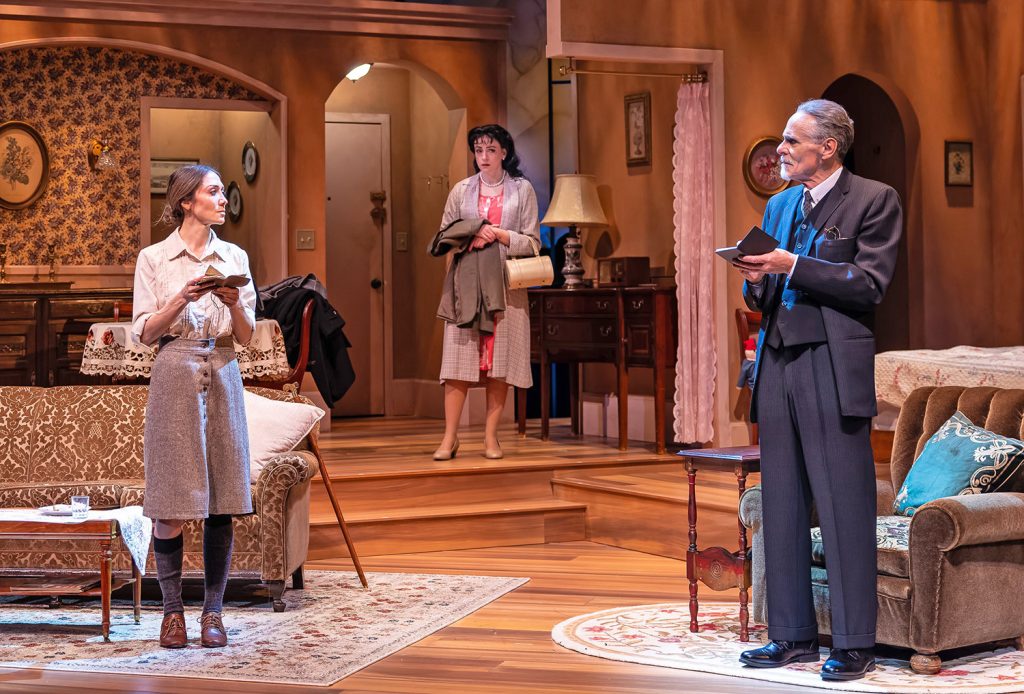
What really powers “A Shayna Maidel” is a wholly original, unforgettable script and, in Laguna Beach, a carefully crafted staging acted with sensitivity and care by six outstanding actors.
Due to Lebow’s skilled, subtly nuanced writing, “A Shayna Maidel” is simultaneously bitter, sweet, sad and joyous. Revel in it.
Moulton Theatre, Laguna Playhouse, 606 Laguna Canyon Drive, Laguna Beach. Through March 31. Running time (including intermission): Two hours, 20 minutes. Tickets: $45 to $84. Ticket purchase/information: 949-497-2787, www.lagunaplayhouse.org.
